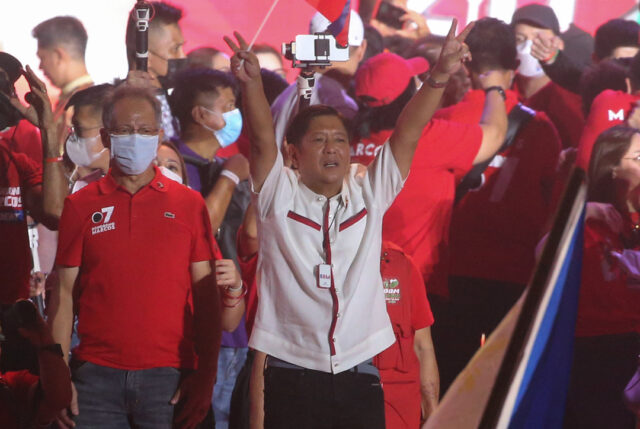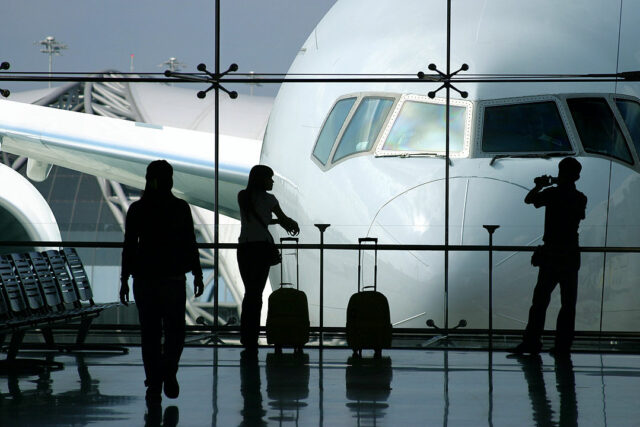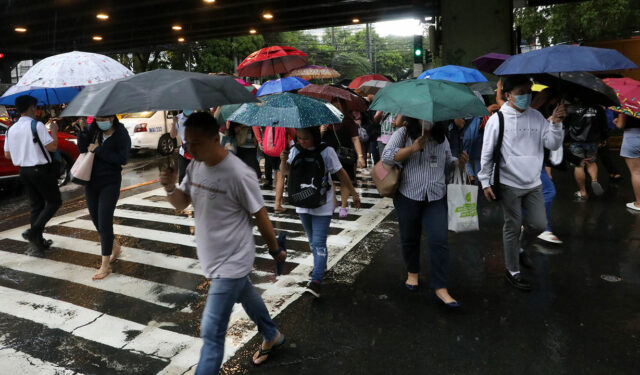SHEIKHPUR – Shivraj Nishad spreads jasmine and rose flowers onto trays in his village in northern India to dry petals used for making tea, aided by a solar-powered dryer in what may be a nascent rural energy revolution.
Mr. Nishad, 29, returned home to cultivate flowers on a family plot in Sheikhpur by the Ganges river in Uttar Pradesh state three years ago, after becoming frustrated by long hours as a traveling representative for a pharmaceutical company.
His micro-business breakthrough came when he invested savings of 60,000 rupees ($732) to buy a solar dryer, which includes two solar panels that power fans to waft warm air over thousands of flowers in batches of 60 kg (132 lb).
The covered dryer halved the traditional open-air drying time, doubling production of petals sold to make blue tea and other floral teas. That enabled Mr. Nishad to buy from farmers far beyond his 0.6 acre (0.2 hectare) family plot.
“The dryer helped me establish trust in my business,” he said, spreading out lapis blue pea flowers and white Arabian jasmine, infusing the warm afternoon air with perfume.
India is seeking innovators like Mr. Nishad as tiny contributors towards a national goal of installing 500 GW of energy from non-fossil sources by 2030, part of wider UN targets to end poverty and fight climate change.
The world’s most populous nation, India is achieving slow but steady growth in businesses that do not rely on an electricity grid, including solar dryers, biomass-powered cold storage, and solar silk-reeling machines.
But high costs, the difficulty of obtaining clean energy technology, farmers’ lack of access to markets and inadequate information for budding entrepreneurs remain big barriers.
Mr. Nishad now sells 500-1,000 kg of flowers per month, worth up to 400,000 rupees, with profits of about 100,000 rupees. The business also helps hundreds of farmers in the region and provides at least 10 year-round local jobs, half of them for women.
MONSOON BOON
Mr. Nishad’s dryer, comprising trays placed on a metal stand under a roof of polycarbonate sheets with a total area of about 5 square meters (54 square feet), is especially valuable during the monsoon when flowers usually get wasted.
“The solar dryer saved me from getting demoralized in rainy months,” he said. Mr. Nishad can dry two batches of flowers a day, against just one using open-air drying.
A May report launched by the Indian renewables minister R.K. Singh identified 12 promising off-grid technologies, including solar pumps and solar dryers. These technologies could help 37 million people in India, the report said.
Prepared by the Council on Energy, Environment and Water, an Indian think-tank, the report said that the 12 “decentralized renewable energy” (DRE) technologies can generate business of $50 billion for manufacturing enterprises alone.
At the time, Singh said India might soon come out with a specific policy to promote DRE technologies.
But about 90% of India’s farmers are smallholders, earning about 10,000 rupees per month. Investments in renewable energies are often unaffordable, except for groups of farmers.
An exception, Mr. Nishad has set up a small centre outside the village, where farmers from the nearby area come to sell their plucking twice – early morning and evening. These fresh flowers need to be dehydrated within 12-15 hours.
While the covered dryer ensures the dried flowers are free of contaminants like dust or bird droppings, demand is so high that he also uses open-air drying. That means extra costs to clean the openly-dried flowers before packaging.
“If these dryers become more affordable for all small farmers, the quality of their product will increase, pushing up their profits also,” he said.
LEMONS IN COLD STORAGE
Elsewhere in India, lemons are among farm products benefiting from the drive for renewable energy.
Cold stores, or giant fridges, powered by biomass can extend lemons’ shelf life, allowing farmers to sell when prices are higher than during a glut in the months after harvest.
“The cold storage is helping all farmers from getting devastated each year,” said Jalinder Raut, a member of a Farmer Producer Organization (FPO) in Indapur, in west India’s Maharashtra state.
His FPO built a 20-tonne capacity cold storage for about 450,000 rupees, with a 50% subsidy from the producer and a three-year loan from the local cooperative bank, he said.
In December, the market price for lemons tumbled to 3 rupees per kg but rose to 115 rupees by March. By waiting it out, Mr. Raut said the FPO booked a profit of 320,000 rupees.
And, he added, the biomass used to generate electricity is cheaper and more reliable than power from the local grid. “The profits that we are earning and savings on the running costs will help us quickly pay off the loan,” Mr. Raut said.
For India, the challenge is expanding such technologies from 1,000 farmers to 10 million farmers, said Simmi Sareen, director of Unitus Capital, a social and environmental impact investment firm.
She said that India needed to promote ways to cover high upfront costs by creating leasing models, rather than government subsidies. And more education was needed for farmers about renewables and how to sell their products.
William Brent, chief marketing officer of Husk Power, a microgrid operator company active in Asia and Africa, said rural communities needed more reliable electricity.
He said there was a huge untapped opportunity for partnership between the public electricity distribution companies and the private sector mini-grid developers.
Flower farmer Nishad, inspired by the venture investment reality TV show “Shark Tank”, wants to create a farmer-led brand of food products and is looking for land to set up a processing unit.
“I will only use renewable energy-powered appliances,” he said.
He also dreams of expanding his flower business to a 500 kg capacity dryer that costs about 300,000 rupees, five times the cost of his existing 60 kg dryer.
“With the income I earn, a 500 kg dryer is out of my reach,” Mr. Nishad said, while loading a tray full of fresh blue pea flowers. – Reuters















